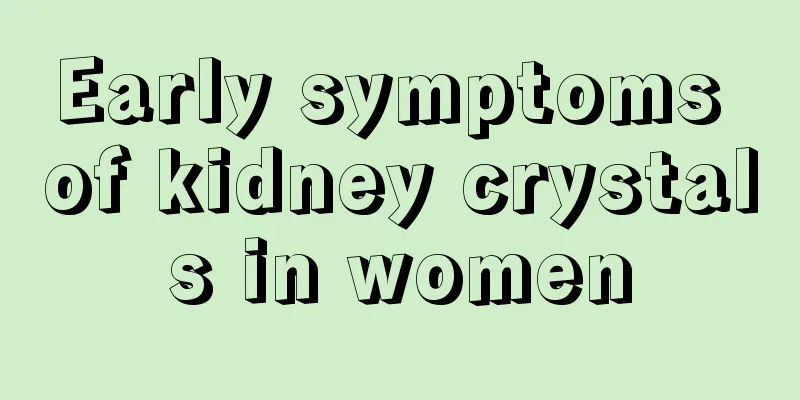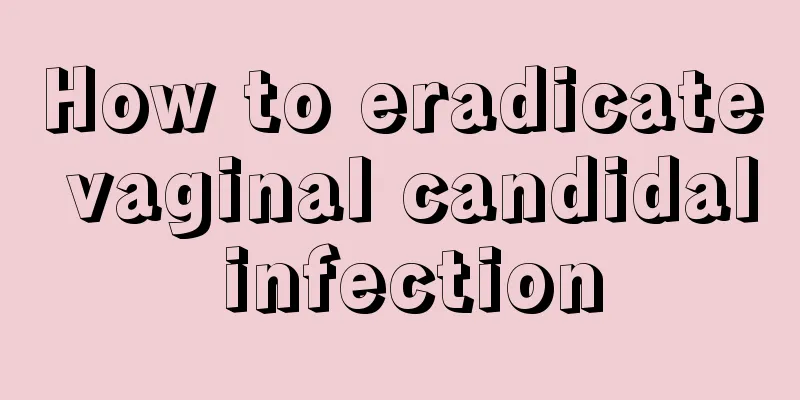What are the dangers of uterine fibroids?

|
Uterine fibroids are a very common benign gynecological tumor. Although the chance of this disease turning into a malignant tumor is relatively low, it can still cause great harm to our health. Usually, uterine fibroids do not have many obvious symptoms and are very difficult to treat. However, if the treatment is not timely, it will cause great harm, such as infertility, miscarriage, some gynecological inflammation, secondary anemia, etc., so we need to treat this disease correctly. 1. Anemia. Uterine fibroids can cause increased menstruation and prolonged menstrual periods. Long-term conditions can cause secondary anemia. In severe cases, patients may even experience symptoms such as pale complexion, general fatigue, or palpitations and shortness of breath, affecting their physical health. 2. Infertility and miscarriage. Large uterine fibroids can cause the uterine cavity to deform, and the uterine fibroid tissue in the uterine corners can compress the entrance of the fallopian tubes, which can affect the implantation of the fertilized egg and ultimately cause infertility. Even if a woman becomes pregnant, she may easily suffer a miscarriage. 3. Pain. Generally speaking, uterine fibroids do not cause pain, but some patients will experience symptoms such as lower abdominal distension, back pain, etc. In addition, red degeneration of uterine fibroids and pedicle torsion of subserosal uterine fibroids can cause acute abdominal pain. 4. Uterine bleeding. Many patients with submucosal uterine fibroids and intramural uterine fibroids will experience uterine bleeding, among which cyclical bleeding is more common, mainly manifested by increased menstrual volume and prolonged menstrual period. 5. Malignant lesions. In a minority of women, malignant changes in uterine fibroids may turn into sarcomas, which can cause vaginal bleeding and lower abdominal pain. In late stages, the fibroids can spread through the bloodstream, directly spread, and metastasize to multiple parts of the body through the lymph nodes. How to reduce the harm of uterine fibroids? 1. Increase exercise appropriately to enhance the body's immunity and disease resistance, such as jogging, climbing, swimming, etc. You can also do uterine health exercises. 2. Eat scientifically and have balanced nutrition. The diet should be light, with more vegetables and less meat. Eat less acidic, cold, spicy and stimulating foods and foods with high hormone content. 3. Maintain a calm and optimistic attitude, and pay attention to regulating your own anxiety, tension, and depression to avoid affecting your endocrine system and aggravating your condition. |
<<: Is there any disease in women with sparse pubic hair?
>>: What to do if your menstrual period is irregular
Recommend
What causes pelvic inflammatory disease?
The occurrence of pelvic inflammatory disease is ...
【World Kidney Day】Young people in the hemodialysis room
“If only we had discovered it sooner.” “Why didn’...
Can visual acuity reach 1.0 after myopia surgery?
Many friends who want to undergo myopia surgery n...
What are the benefits of yoga for girls?
Yoga is a sport that originated in India. Current...
iUS Stocks: Linkedin social network research – the victory of precise data system
Background: The era of "big data" - the...
How long is the best time to close the abdomen after cesarean section
Mothers who give birth by cesarean section will n...
Postpartum allergy rash
It is not easy for a mother to recuperate after g...
Menstruation was delayed for 9 days and the test was still a single line
Women's menstrual periods are all regular, bu...
Can I have sex if I have cervical erosion?
Women are prone to many diseases, the most common...
Female feeling dizzy and wanting to sleep
In daily life, feeling dizzy and drowsy is a comm...
Can you get pregnant after your period?
Menstruation is a special physiological period th...
Can I drink alcohol before having an abortion?
Nowadays, alcoholic beverages are one of the most...
Is it good to wash gynecological inflammation with salt water?
Although gynecological inflammation is difficult ...
"Preeclampsia" is very harmful, pregnant mothers must not take it lightly!
Pregnancy is a special physiological period, and ...
Can you have sex after biochemical pregnancy is clear?
Ectopic pregnancy is actually a hidden abortion, ...









